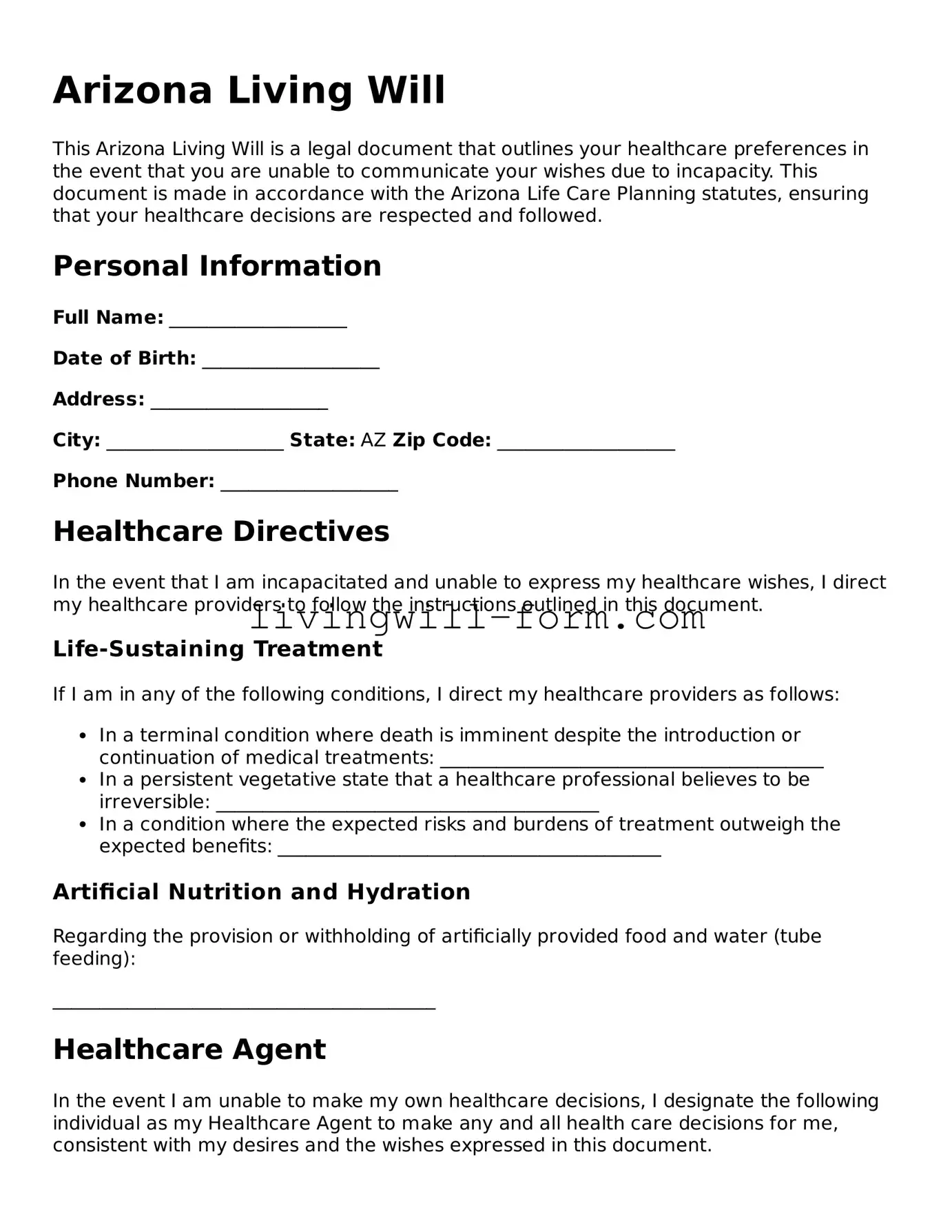Attorney-Verified Arizona Living Will Template
The Arizona Living Will form is a legal document that allows individuals to outline their preferences for medical treatment in the event that they are unable to communicate these wishes themselves. This critical document serves as a guide for healthcare providers and loved ones, ensuring that the individual's healthcare decisions are respected even when they cannot express them directly. By completing this form, individuals can convey their desires clearly, from life-sustaining treatments to end-of-life care preferences.
Access This Living Will

Attorney-Verified Arizona Living Will Template
Access This Living Will

Access This Living Will
or
▼ Living Will PDF
Finish the form and move forward
Edit and finish your Living Will online fast.